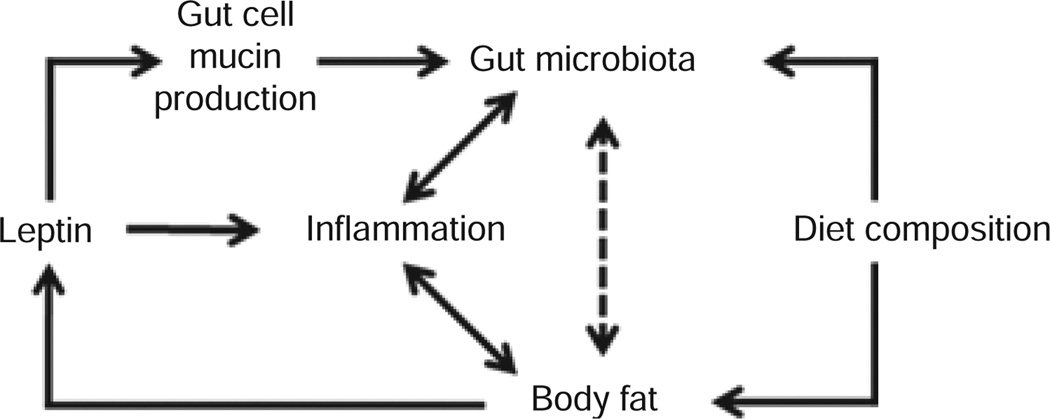Figure 5.
Schematic depicting possible inter-relationships among diet composition, gut microbiota, circulating leptin, body fat, markers of inflammation, and gut mucin. Body fat directly determines leptin production and elevated body fat increases macrophage infiltration (with associated production/release of inflammatory molecules such as tumor necrosis factor α, serum amyloid A3, and chemokine (C-C motif) ligand 2 (MCP-1) in adipose tissue). The results presented here suggest that diet composition (fractional fat content) directly affects gut microbiota independent of effects mediated by body weight and body composition. Leptin promotes proliferation, differentiation, and survival of immune cells. Leptin also stimulates mucin production in mouse and human intestinal cells (27,28). Mucin affects local bacterial “micro-niches” in the gut by favoring the growth of some bacteria (25,26). Leptin can affect intestinal barrier function by inhibiting apoptosis and promoting regeneration of intestinal epithelium (39,40). These changes in epithelial composition may in turn affect microbiota populations in the gut. The dashed line between body fat and gut microbiota suggests biologically possible connection(s) that might be mediated by adipocytokines or other molecules secreted from adipose tissue.

